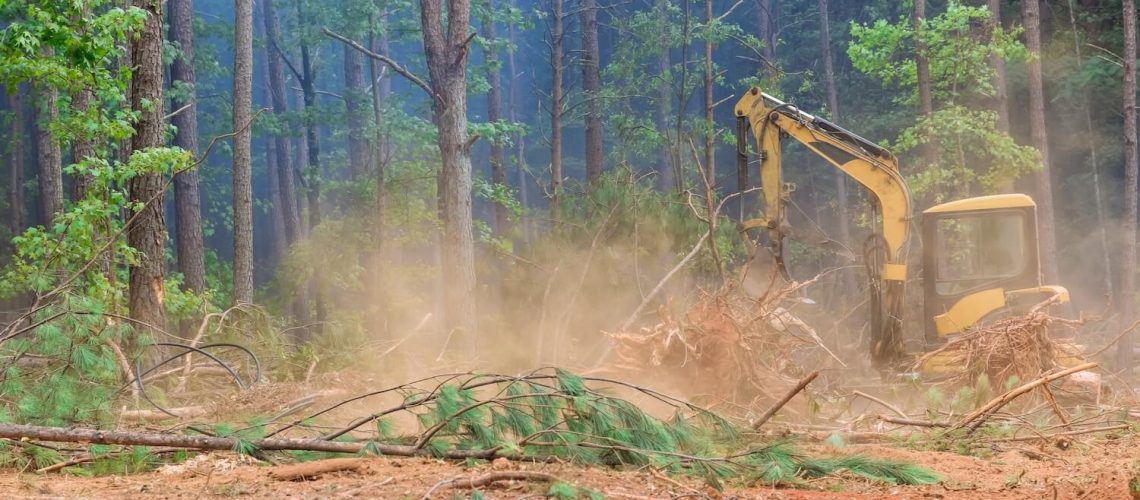Land clearing is an essential step in various construction and development projects. Whether you’re planning to build a new home, expand a commercial space, or embark on an agricultural venture, hiring a professional land clearing company is crucial. However, choosing the wrong company can lead to costly mistakes, delays, and even environmental hazards. To ensure a smooth and successful land clearing process, here are the top five mistakes to avoid when hiring a land clearing company.
1. Not Checking Credentials and Insurance
One of the most common mistakes people make when hiring a land clearing company is not verifying their credentials and insurance. A reputable company should be licensed, bonded, and insured to protect both you and their workers in case of accidents or damages.
Why it’s important:
- Legal Compliance: A licensed company ensures that they adhere to state and local regulations, ensuring that the land clearing process is legal and environmentally responsible.
- Financial Protection: Bonded and insured companies provide financial protection against potential damages or injuries that may occur during the clearing process.
How to avoid it: Before hiring a company, ask for their license, insurance certificates, and any other relevant credentials. Verify these documents with the appropriate authorities to ensure they are valid and up-to-date.
2. Choosing Based Solely on Price
While it might be tempting to choose the cheapest option available, selecting a land clearing company based solely on price can be a costly mistake in the long run.
Why it’s important:
- Quality of Work: Lower-priced companies may cut corners, leading to subpar workmanship and potential issues down the line.
- Hidden Costs: Some companies may provide a low initial quote but add extra charges for unforeseen challenges or additional services.
How to avoid it: Instead of focusing solely on price, consider the company’s reputation, experience, and the quality of their previous work. Obtain multiple quotes and compare them based on these factors to make an informed decision.
3. Ignoring Reviews and References
Another common mistake is overlooking reviews and references when hiring a land clearing company. Customer testimonials and references can provide valuable insights into a company’s reliability, professionalism, and the quality of their services.
Why it’s important:
- Reputation: Positive reviews and references indicate that the company has a track record of delivering satisfactory results and excellent customer service.
- Reliability: Companies with a strong reputation are more likely to complete the job on time and within budget, minimizing potential delays and disruptions.
How to avoid it: Before hiring a company, research their online reviews, ask for references from past clients, and follow up with these references to get feedback on their experience with the company.
4. Not Clarifying Scope of Work
Miscommunication regarding the scope of work is a common issue that can lead to misunderstandings, delays, and additional costs.
Why it’s important:
- Clear Expectations: Clearly defining the scope of work ensures that both parties have a clear understanding of the project’s requirements, timelines, and deliverables.
- Avoiding Disputes: A detailed contract outlining the scope of work minimizes the risk of disputes and disagreements between the client and the land clearing company.
How to avoid it: Before signing any contracts or agreements, discuss the project’s details with the company and ensure that everything is documented clearly in writing. This includes the extent of the clearing, equipment to be used, timelines, and any other specific requirements.
5. Overlooking Environmental Considerations
Land clearing can have significant environmental impacts if not done responsibly. Hiring a company that disregards environmental regulations and best practices can lead to legal repercussions and long-term environmental damage.
Why it’s important:
- Environmental Responsibility: Responsible land clearing practices help minimize soil erosion, protect wildlife habitats, and maintain the ecological balance of the area.
- Compliance: Adhering to environmental regulations and obtaining necessary permits ensures that the land clearing process is conducted legally and sustainably.
How to avoid it: Choose a land clearing company that prioritizes environmental stewardship and has experience in conducting environmentally-friendly clearing practices. Ask about their approach to environmental compliance, erosion control, and restoration efforts to ensure they are committed to protecting the environment.
How to Hire a Land Clearing Company
Hiring a land clearing company requires careful consideration and thorough research to ensure that you choose a company that meets your specific needs and expectations. Here’s a step-by-step guide to help you navigate the hiring process effectively.
1. Conduct Excavation Services Research
Start by conducting initial research to identify potential land clearing companies in your area. You can ask for recommendations from friends, family, or colleagues who have experience with land clearing services. Additionally, you can use online directories, review websites, and industry associations to find reputable companies.
2. Check Company Credentials and Insurance
Once you have a list of potential companies, the next step is to verify their credentials and insurance. As previously mentioned, a reputable land clearing company should be licensed, bonded, and insured. Ask for copies of their license, insurance certificates, and any other relevant credentials, and verify them with the appropriate authorities to ensure they are valid and up-to-date.
3. Request Multiple Business Quotes
Obtain quotes from at least three to five different land clearing companies to compare their pricing, services, and terms. When requesting quotes, make sure to provide each company with detailed information about the project, including the size of the area to be cleared, any specific requirements, and your preferred timeline.
4. Review and Sign the Project Contract
Once you have selected a land clearing company that meets your requirements and expectations, review the contract carefully before signing. Make sure that all agreed-upon terms, including the scope of work, pricing, payment schedule, and any warranties or guarantees, are clearly outlined in the contract. If you have any questions or concerns about the contract, don’t hesitate to ask the company for clarification before proceeding.
5. Monitor the Clearing Work Progress
Throughout the land clearing process, it’s essential to monitor the company’s progress to ensure that the work is being completed according to the agreed-upon terms and timelines. Maintain open communication with the company’s project manager or supervisor and address any issues or concerns promptly to avoid potential delays or disputes.
6. Evaluate the Project Results
Once the land clearing project is completed, take the time to evaluate the results and inspect the cleared area to ensure that the work meets your expectations and standards. If you are satisfied with the company’s services, consider leaving a positive review and recommending them to others who may require land clearing services in the future.
Conclusion
Hiring a professional land clearing company is a critical step in ensuring the success of your construction or development project. By avoiding these five common mistakes – not checking credentials and insurance, choosing based solely on price, ignoring reviews and references, not clarifying the scope of work, and overlooking environmental considerations – you can make an informed decision and hire a company that is reliable, experienced, and committed to delivering high-quality services while protecting the environment.
Remember, investing time and effort in selecting the right land clearing company upfront can save you from costly mistakes, delays, and potential legal issues in the long run. By prioritizing quality, professionalism, and environmental responsibility, you can ensure a smooth and successful land clearing process that sets the stage for your project’s success.

